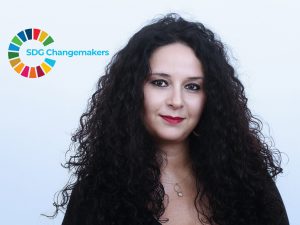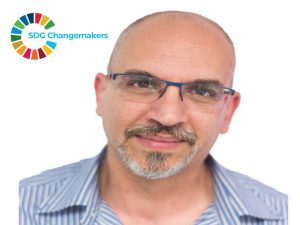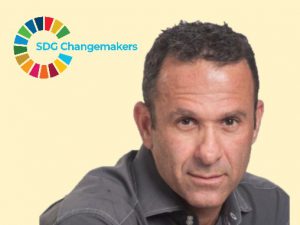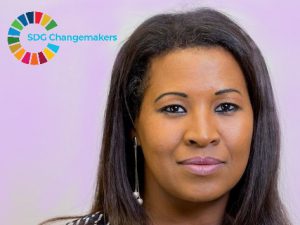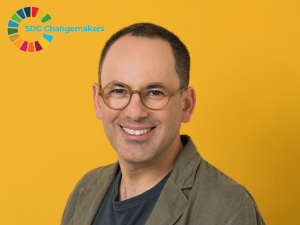Director General, Israel Planning Administration, Ministry of Interior
SII: Please briefly describe your work
DZ: Since 2017 I serve as Director General of the Israel Planning Administration, which is responsible for planning and regulating Israel’s future spatial development through national, regional and local plans and policies. In our daily activity we deal with a range of topics, such as housing, energy, infrastructure, transportation, open spaces and seashores, on multiple scales, from national to local levels. All of which have a strong effect on each and every citizen – on their accessibility to amenities and services, their ability to travel by public transportation or by foot, their employment opportunities, the availability of open spaces and so on.
Since numerous diverse requirements and interests – economic, social, environmental and so on – are present in almost every available space, the planning mechanism often finds itself dealing with complex and even conflicting decision-making circumstances. Such decisions are made, in the end, with the objective of creating a balance between various – and sometimes contradictory – requirements and considerations, as well as between today’s and tomorrow’s needs.
SII: Name three principle values that you associate with your work?
DZ: Integrative Strategic Thinking: Alongside the need to handle urgent issues that come up regularly in Israel, I attach great importance to promoting thoughtful, long-term planning that places an emphasis on quality.
Future Generations: Planning, by definition, is forward-thinking, while simultaneously it grapples with the here and now. In finding the balance between today and tomorrow, it is my job to make sure that the voice of the generation yet to be born is heard – and to ensure that its open spaces and development possibilities are guaranteed.
Wealth Distribution and Equity: I am deeply committed to the principle of reducing gaps between regions, between towns, between the center and the periphery. Opportunity must be fairly distributed throughout the country, so that the place in which people are born does not dictate their future.
SII: What particularly motivates you to make a difference?
DZ: Planning for Israel’s future development constitutes a unique challenge. Ours is a small country, geographically, with a population that continues to grow.
This challenge is driving me personally – and all of us at the Planning Administration – to improve the quality of life of each and every citizen, while simultaneously making sure that we efficiently use our land and protect our open spaces. The built environment and open spaces are the yin and yang of spatial planning: the more we densify our cities and direct development inwards, the more we will be able to protect natural resources and open spaces.
As we advance the quality of the urban environment, we also need to take into account that the population we are planning for is far from monolithic; Israeli society includes people with different needs and varying desires. I believe planning that facilitates and encourages diversity is the right kind of planning for Israel. This type of planning does not adapt itself in advance to one specific group, but rather creates a quality urban space that suits the broad spectrum of people and activities.
SII: What positive impact do you see emerging through your activity?
DZ: It’s not easy to effect change, but I’m happy to report that the Administration’s activities are having a positive impact. For example, in the past few years, urban regeneration is increasingly recognized as key to Israel’s future development and is now a matter of priority among various government ministries. We consider urban regeneration as an opportunity to revitalize cities, increase urban density, improve the use of land resources, significantly expand housing availability and improve the quality of public spaces in existing cities.
Transportation infrastructure constitutes another example of our positive impact. The planning system has a key role in reducing car dependency, improving accessibility and encouraging the use of public transportation. Understanding this, we are promoting different measures ranging from the Metro in the Tel Aviv metropolitan area to guidelines for transit-oriented planning. These ideas reflect our belief that transportation needs to serve the people, not the other way around.
Another example is the chapter that deals with seashore in the National Outline Plan No. 1, which bans development within 100 meters of the sea. The principle behind this policy views the seashore as a public space – and one that should remain as such for the next generations to enjoy.
SII: What is your favorite project?
DZ: That’s a tough question, especially since many plans are inter-connected. One prominent example is the strategic plan for 2040, a long-term, integrative and forward-looking plan that comprises of four main areas: housing, employment, infrastructure and transportation, and open spaces. Among its goals: to formulate an integrative and forward-looking response to the needs of the individual, community and environment; and to advance quality planning that accommodates changing characteristics and needs, while at the same time ensuring equal opportunity.
SII: How has your work been affected by the COVID19 crisis?
DZ: I attach great importance to transparency in our work and have been incredibly pleased, that the crisis has actually increased the participation in the discussions of planning committees. The sessions that are open to the public are broadcast live via our YouTube channel; in effect, the general public can take part directly in such a way that increases trust in the planning and decision-making process. So, what began as a necessity has turned out to be a blessing, increasing transparency and access.
Beyond that, the crisis has served to reinforce the importance of principles that were already in effect in much of our work. These include, for example, the accessibility to services and commercial centers, as well to open spaces and urban nature.
More about Dalit Zilber
Prior to her appointment as Director General of the Planning Administration, in 2016 Dalit was selected chair of two district planning and construction committees: Jerusalem and Tel Aviv.
Dalit received her master’s degree in urban and regional planning from the Technion. After completing her studies, she began her professional path in promoting national master plans for infrastructure. Later, she served as the Chief Planner of Jerusalem District; in this capacity, she promoted Jerusalem’s Master Plan including policies for urban regeneration, the preservation and delimitation of the historic city and a plan for the city’s entrance.


